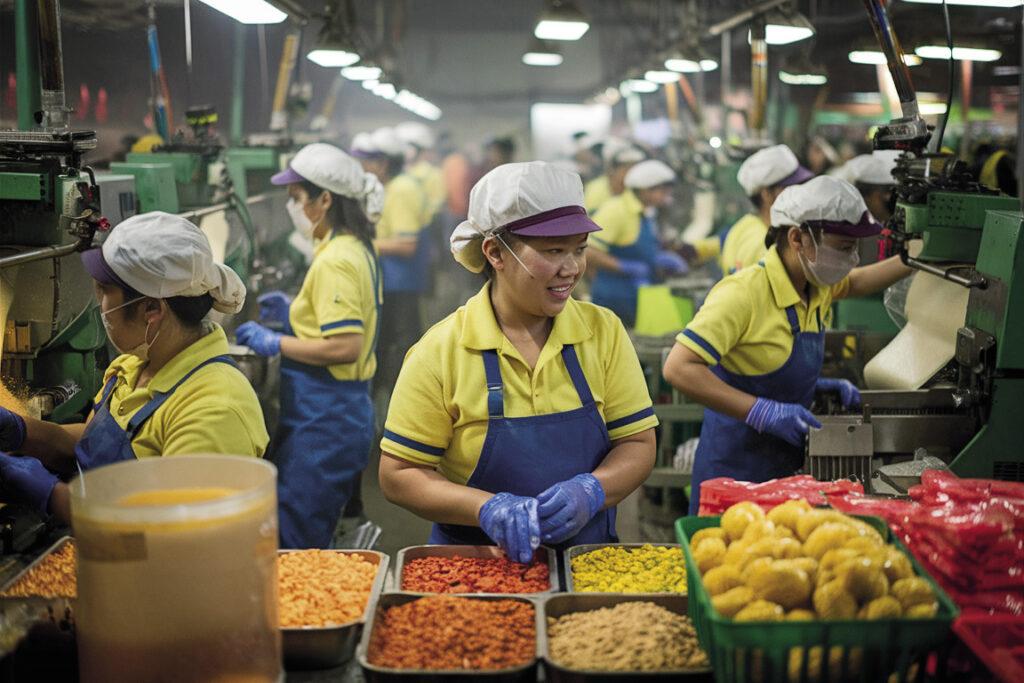The missing workforce – Lawyers from PwC Legal, Dr László Szűcs and Dr Melinda Molnár were the guests of Chain Bridge Club
At the end of December, a new law on the entry and residence of third-country nationals was passed. Then we had to wait another two months for detailed procedural rules, interpretative provisions, quotas, and the list of authorised countries. Now a very complex and diverse new set of rules is available, under which third-country nationals can be employed in Hungary.
This article is available for reading in Trade magazin 2024/5

Dr. László Szűcs
lawyer, member
Réti, Várszegi Co
Law Office
PwC Legal

Dr. Melinda Molnár
lawyer, member
Réti, Várszegi & Co
Law Office
PwC Legal
Companies may be most interested in the procedures for integrating third-country workers into the Hungarian labour market, and in how and under what conditions workers who are already here can stay. The answer to the latter question is simple, in the sense that previous permits that are about to expire can now only be “extended” under the new conditions. In accordance with this, from 1 March 2024 the competent authorities only issue permits under the new rules. In most cases the transitional rules ensure that those who are already legally residents won’t have to go home to get an extension at the Hungarian consulate of their home country.
The current legislation now distinguishes between four different types of guest workers. For all four of these, the same rule applies: guest workers can only stay in Hungary for work purposes and family members aren’t allowed to join them. After staying in Hungary for two to three years, they are obliged to leave the country. The new legislation lays down very strict liability and expectation rules for the Hungarian employer in respect of the obligation to leave the country. In the case of agricultural work it is advisable to obtain a residence permit for seasonal work, valid for a maximum period of six months. Another category of guest worker needs a residence permit issued for the purpose of realising a project. Such permits are only available to companies who have signed a special agreement with the government.

The current legislation now distinguishes between four different types of guest workers
A guest worker residence permit can be obtained for “classic” guest workers, but the legislation is very strict on the types of jobs that can’t be done, the countries from which guest workers can come, and the total number of permits that can be issued per year. In this case employment is possible for two plus one years.

The residence permit for employment purposes has also become a kind of guest worker residence permit
Highly qualified workers aren’t covered by the restrictive rules for the guest worker category, therefore they aren’t subject to occupational, country and number restrictions. In their case several different types of residence permits can be obtained depending on the conditions under which they work in Hungary. In line with this, a Hungarian Card, an EU Blue Card, an intra-corporate transfer or a Company Card may serve as residence permits that allow highly qualified people to work in Hungary. The rule that visa is required to enter Hungary for the countries defined in the EU regulation hasn’t changed. In itself a visa doesn’t entitle the holder to work, so if work is to be performed in Hungary after entry, a residence permit for work must also be applied for together with the visa. //
Related news
Amikor a megszámlálhatatlan megszámlálhatóvá válik
🎧 Hallgasd a cikket: Lejátszás Szünet Folytatás Leállítás Nyelv: Auto…
Read more >Stability is at a standstill: a difficult year awaits Hungarian workers
🎧 Hallgasd a cikket: Lejátszás Szünet Folytatás Leállítás Nyelv: Auto…
Read more >Year-end reflections and heart-warming thoughts!
🎧 Hallgasd a cikket: Lejátszás Szünet Folytatás Leállítás Nyelv: Auto…
Read more >Related news
Festival buzz at the 60th anniversary EuroShop trade fair
🎧 Hallgasd a cikket: Lejátszás Szünet Folytatás Leállítás Nyelv: Auto…
Read more >A stable compass in the Hungarian FMCG sector for 20 years
🎧 Hallgasd a cikket: Lejátszás Szünet Folytatás Leállítás Nyelv: Auto…
Read more >








